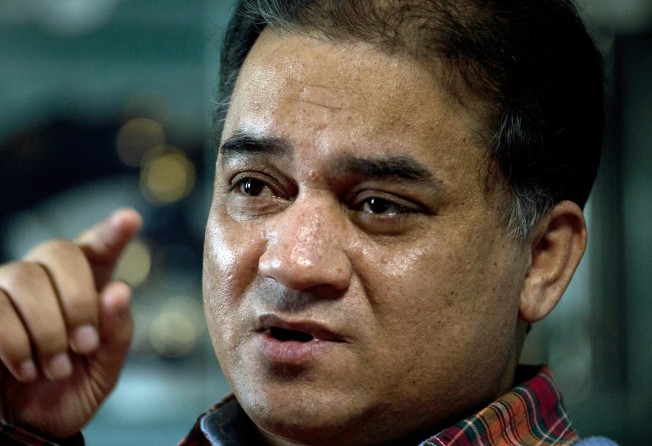Jailed Uygur dissident Ilham Tohti wins top European human rights prize
- Economist has been serving a life sentence in China since 2014 on separatism-related charges
- Before his arrest he had called on Beijing to ease tensions in Xinjiang

Jailed Uygur academic Ilham Tohti has been awarded one of Europe’s top human rights prizes, as Beijing comes under pressure over its treatment of the predominantly Muslim population in its far western Xinjiang region.
Tohti, who has been serving a life sentence in China since 2014 on separatism-related charges, is the first Chinese dissident to win the Vaclav Havel Human Rights Prize, awarded by the Council of Europe in Strasbourg. He has also been nominated for the Nobel Peace Prize.
He shares the award with the Youth Initiative for Human Rights, a group promoting reconciliation in the Balkans.
“Their admirable courage enables them to resist misunderstanding and rejection, as well as political pressure, which in Mr Tohti’s case resulted in a criminal conviction for expressing his views freely,” said Liliane Maury Pasquier, president of the Parliamentary Assembly of the Council of Europe, which sponsors the prize.
“Their action carries a message of hope for all those who aspire to a better world, where dignity, rights and fundamental freedoms of all are respected and guaranteed,” Pasquier added.
Chinese foreign ministry spokesman Geng Shuang in August called for Tohti’s award nomination to be withdrawn, because he had been convicted on charges of subversion and supporting terrorism.
The prize was named after the Czech politician who opposed Soviet communism.
Before his arrest, Tohti, an ethnic Uygur economist, writer and professor at Minzu University of China, called on Beijing to ease tensions in Xinjiang, urging the authorities to abide by the region’s laws, reduce economic discrimination and establish a legal system.
More than a million ethnic Uygurs and members of other largely Muslim ethnic groups are believed to have been detained in extrajudicial internment camps in Xinjiang in a crackdown that began in early 2017. The camps have prompted an international outcry, but the government says they are vocational training centres and part of an effort to combat terrorism.
There have been reports of torture and forced labour at the camps, and some members of the Uygur diaspora in Turkey have also complained of forced family separation in Xinjiang, with children ordered to go to boarding schools.